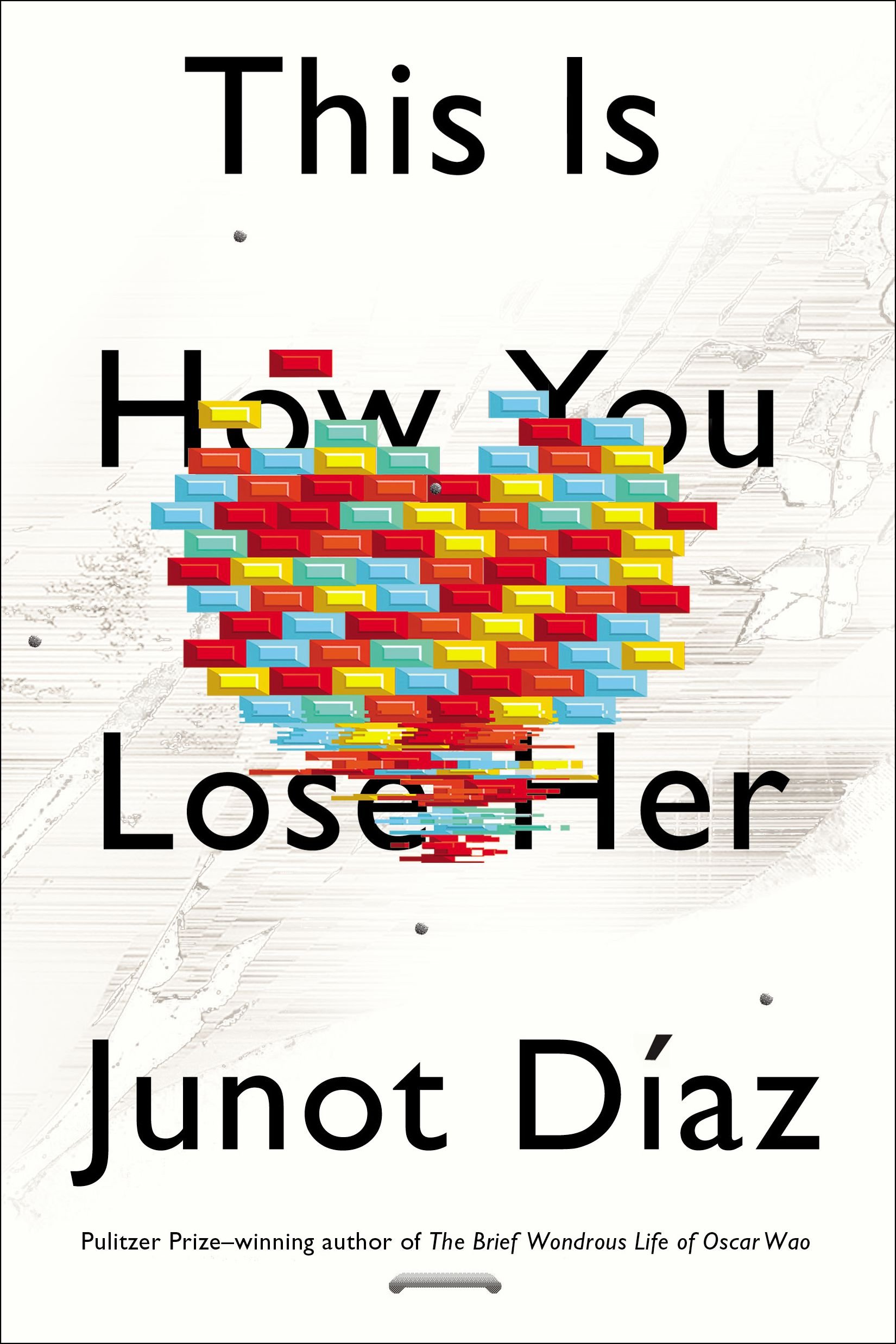This Is How You Lose Her by Junot Díaz
 Thus far, mega-award winning Junot Díaz (also recently bestowed the “Genius” moniker by the MacArthur Foundation) hasn’t written a book without his sort-of autobiographical stand-in Yunior de las Casas. Díaz’s 1996 fiction debut, Drown, introduced Yunior through interlinked short stories; a decade-plus later, Díaz turned over full narrative control to his pseudo-alter-ego in his 2008 Pulitzer Prize-winner, The Brief Wondrous Life of Oscar Wao.
Thus far, mega-award winning Junot Díaz (also recently bestowed the “Genius” moniker by the MacArthur Foundation) hasn’t written a book without his sort-of autobiographical stand-in Yunior de las Casas. Díaz’s 1996 fiction debut, Drown, introduced Yunior through interlinked short stories; a decade-plus later, Díaz turned over full narrative control to his pseudo-alter-ego in his 2008 Pulitzer Prize-winner, The Brief Wondrous Life of Oscar Wao.
Yunior stars again in Díaz’s latest award-studded title which, if you choose to stick in your ears, you get the added experience of Díaz’s own narration. Both Drown and Oscar are superbly narrated by Johnathan Davis; here, the switch to Díaz is both disturbing (I know this is fiction, but all that first-person confession seems suddenly heavier) and rewarding (who doesn’t want to hear an author read his/her own writing … uh, except for maybe Michael Ondaatje’s surprisingly disappointing performance of his – also filled with autobiographical overlaps – The Cat’s Table).
Given the title (not to mention the endless fawning media attention), This is not a collection of lovey-dovey happy-endings. Of the nine stories, eight belong to Yunior who has an uncontrollable problem with fidelity. “I’m not a bad guy,” the first story – “The Sun, the Moon, the Stars” – opens, “I’m like everyone else: weak, full of mistakes, but basically good.” His cheated-on girlfriend disagrees: “She considers me a typical Dominican man: a sucio, an a**hole.” Having witnessed his father’s and brother’s wandering ways, Yunior thought he could be otherwise: “You had hoped the gene missed you, skipped a generation, but clearly you were kidding yourself,” he admits in “Miss Lora.” By the final story, “The Cheater’s Guide to Love,” Yunior’s sucio red-letter badge threatens permanence.
Half of Yunior’s eight stories expand his immigrant childhood into searching teenagerhood: the family’s not-so-warm New Jersey reunion with a cold, controlling father in “Invierno”; his brother Rafa’s teenage, testosterone-charged exploits in “Nilda”; Rafa’s leukemia with the neverending complications of his too-active love life in “The Pura Principle”; and Yunior’s own cheating-on-his-high-school-girlfriend extracurricular relationship with an older woman in “Miss Lora.” Yunior’s college and young adult experiences get confessionally aired in “Alma,” “Flaca,” and “The Sun, the Moon, the Stars,” then jumps ahead to Yunior as an almost-middle-aged Harvard professor who, in the novella-length “The Cheater’s Guide to Love,” suffers many wrenching lonely years after his fiancée discovers his staggering, well-documented, on-the-side record and (no surprise) leaves him.
While Yunior commands the spotlight – the majority of the women here are temporary diversions, even the pined-for fiancée – at least two women demand lasting attention: Yunior’s mother who is neglected, oppressed, abandoned, and finally liberated with a Spanglish coven regularly available for prayer and gossip; and Yasmin, the protagonist in the single story that doesn’t belong to Yunior, “Otravida, Otravez,” who is a Dominican immigrant whose lover has a letter-writing wife back in the DR.
Beyond the repetitively bad behavior in every story, Díaz imbues each cheating tale with layered depth, including challenges of immigration and assimilation, absent and abusive parents, isolation, socioeconomic barriers, gender gaps, and racial divides. Indeed, as Yunior proclaims, he’s “not a bad guy”; he’s just a horrible lover, but he can be a caring friend and – thanks to that ex who compiled his exploits into “the Doomsday Book” and mailed it to him with a note, “… for your next book” – he turns out to be quite the provocative storyteller.
Readers: Adult
Published: 2012
Sorry, the comment form is closed at this time.

Discussion